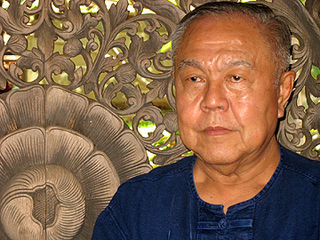A Quote by Gilbert K. Chesterton
Students of popular science... are always insisting that Christianity and Buddhism are very much alike, especially Buddhism. This is generally believed, and I believed it myself until I read a book giving the reasons for it.
Related Quotes
If science proves some belief of Buddhism wrong, then Buddhism will have to change. In my view, science and Buddhism share a search for the truth and for understanding reality. By learning from science about aspects of reality where its understanding may be more advanced, I believe that Buddhism enriches its own worldview.
Buddhism is not concerned just with private destiny, but with the lives and consciousness of all beingsAny attempt to understand Buddhism apart from its social dimension is fundamentally a mistake. Until Western Buddhists understand this, their embrace of Buddhism will not help very much in the efforts to bring about meaningful and positive social change, or even in their struggle to transform their ego.
To you, Christianity, Judaism, Islam, Buddhism, and Hinduism look very different, but to me they look the same. Many of you would say that something like Buddhism doesn't even belong on the list, since it doesn't link salvation to divine worship, but to me this is just a quibble. Christianity, Judaism, Islam, Buddhism, and Hinduism all perceive human beings as flawed, wounded creatures in need of salvation, and all rely fundamentally on revelations that spell out how salvation is to be attained, either by departing from this life or rising above it.
Bolshevism is to be reckoned with Mohammedanism rather than with Christianity and Buddhism. Christianity and Buddhism are primarily personal religions, with mystical doctrines and a love of contemplation. Mohammedanism and Bolshevism are practical, social, unspiritual, concerned to win the empire of the world.



































